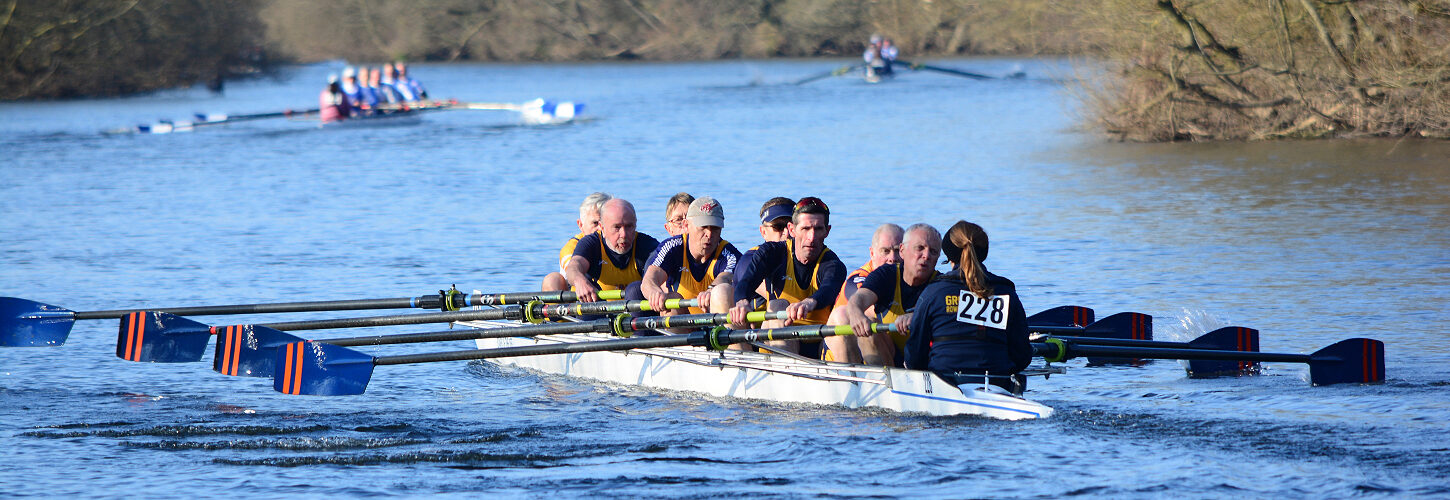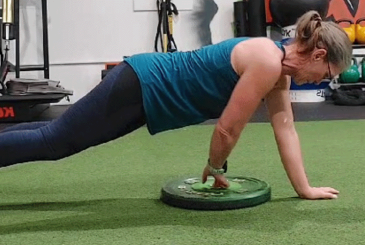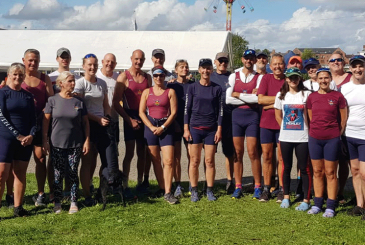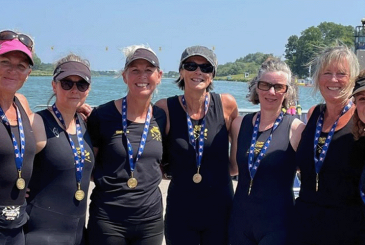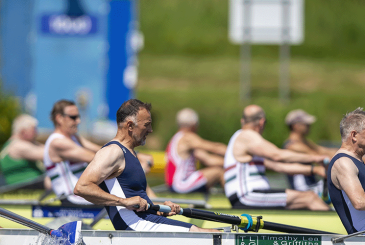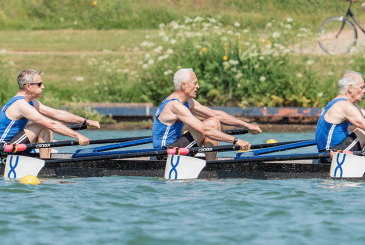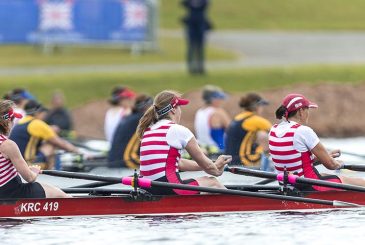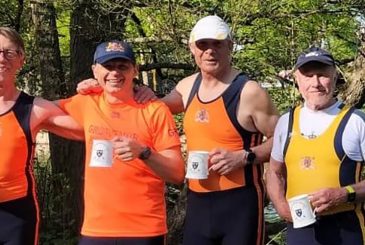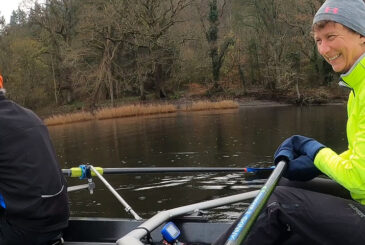Caroline Roberts talks to volunteers from the British Rowing Masters Committee about their roles and what to look out for in the future
The Masters Rowing Committee is responsible for growing participation and developing rowing for those aged over 27. It consists of 12 members, each representing one of British Rowing’s regions, and has four meetings a year, which have been taking place on Zoom since the start of the pandemic.
“It’s a chance to represent the people in your area and give them a voice,” says Chairman Brian Chapman, who is a masters rower at Grosvenor RC in Chester and pictured above in the four-seat with his crew.
“We cover rules, events, handicapping, and coaching in a broad-brush way. It’s all about sharing good practice and new initiatives. The first thing we do at meetings is to ask people what’s been happening in their regions.”
Attracting more people in the masters category who are new to rowing is one of the committee’s priorities and can have huge benefits for clubs, says committee member Julien Tavener, who rows at Bristol Ariel RC and represents the WAGS region (Wiltshire, Avon, Gloucestershire and Somerset).
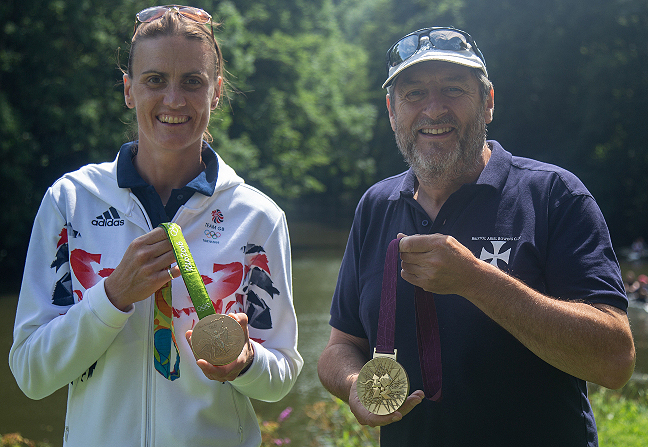
“Encouraging this demographic makes clubs more vibrant as well as improving their financial position. At my club, we’ve been looking at a variety of ways to get people interested in rowing and I fed back some thoughts on how to encourage over-50s who don’t think of themselves as active.
The committee is also currently looking at the thorny issue of handicapping
“Often, they find getting into a single-sculls very nerve-racking, so one of the things we’re looking at is using stand up paddle boards with sculling rigs on them as these are even more stable. We’re planning to launch the initiative this summer. If it works, I’ll be feeding that back to the committee at the next session.”
Another focus is developing more levels of competition. “We need beginner and intermediate levels at masters as people can be a bit unhappy when they turn up at an event and find they’re racing a former Olympic champion,” says Brian.
“The biggest challenge is getting enough participation to achieve that kind of split. There are people who’ve been doing the Explore Series for five years now and there’s not enough space for newcomers, so we desperately need somewhere for them to move on to as they don’t qualify for beginners’ events aimed at people who’ve been rowing for two years.”
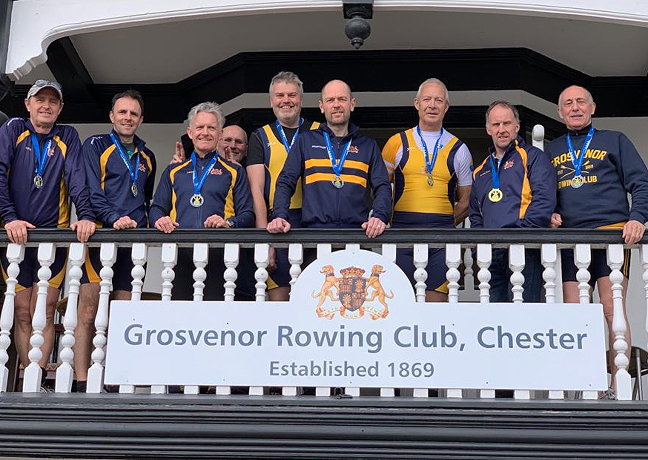
The committee is also currently looking at the thorny issue of handicapping. “I took on a review of the system as there’s a been a feeling that handicaps are too generous at certain age bands,” says Brian. “I’ve looked at all the data and done a new set of tables for the committee to consider. It’s never going to be perfect, but we want to make competition as fair as possible.”
“We all want to get better, and we know we need better coaching for masters”
There’s a huge appetite for knowledge among older rowers, says Sarah Royles, who rows at Nottingham RC, and has been representing the East Midlands region on the committee for the last three years. One of the most successful things that’s happened during that time is a series of workshops around the country run by previous committee chair Jeff Watling, she says.
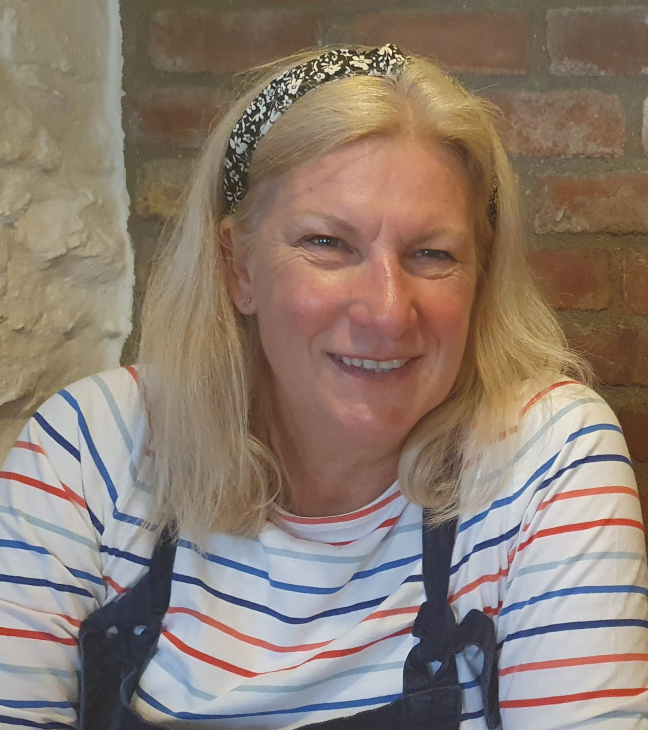
“They covered health, nutrition and training for the older athlete and were very well received. The one in our region was very well attended and sparked lots of questions. People said how interesting it was and it made them think about the level of training they were doing.” The committee is now looking at securing funding to run a similar series next year.
“We all want to get better, and we know we need better coaching for masters,” adds Brian. “We understand that not everyone wants to coach this age group, but we still think there should be a module that teaches coaches what’s different about masters. I think that message is getting through.
“One thing I’d like to do is create more video resources. At our club, we do a really good erg warm up, which would be great to video. We need to get more of this stuff online so we can share it more easily. There’s a huge amount out there; it’s just about bringing it together and I think that’s something we can do as a committee.”
Despite working full time in IT for the local authority and having various other roles in rowing, including being membership and entry secretary for her club, and a multi-lane umpire, Sarah doesn’t find her Masters Committee work too onerous. “It actually complements the other roles, and I enjoy keeping in touch with masters rowers from across the country, sharing experiences and discussing the way we might like things to be done.”
Julien would definitely recommend the role to others. “Masters rowers can bring tremendous benefits to our clubs. These are often people who have a bit more time and contribute enormously to volunteering and running clubs. Being someone who’s a champion for that in the region can only be a good thing.”
Get involved
The Masters Committee is currently looking for representatives for the Yorkshire and Thames SE regions. If you are interested, please contact Brian Chapman at [email protected].
2022 Masters Committee
Chair: Brian Chapman (North West)
Committee Secretary: John Nichols
Steven Denley-Hill (Thames SE) – interim
Kent Matthews (Wales)
Zena Howard (Thames Tideway)
Jo Baxter (East)
Sarah Royles (East Midlands)
Gabrielle Moore (North)
Jim Hotchin (Thames Upriver)
Julien Tavener (Wiltshire, Avon, Gloucestershire and Somerset)
Jeff Watling (Wessex & SE Coast)
Jo Virr (West)
Mike Jones (West Midlands)


